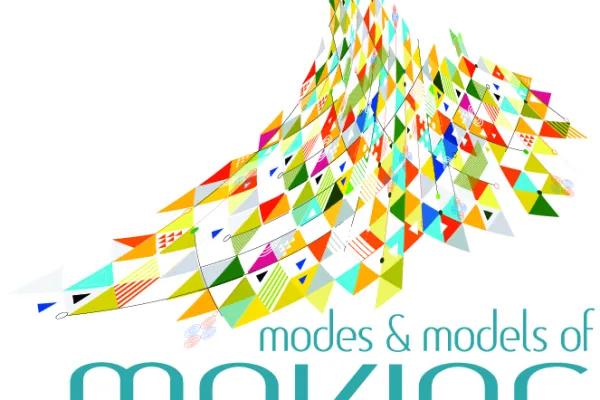Modes and Models of Making (2016-17)

Published April 1, 2016
Project Description
| make a decision make dinner make war make love make maps |
make (an) opportunity make a discovery make a difference make a speech make an impact |
make a movie make a pilgrimage make noise make forecasts make a mess |
In this yearlong Kahn project we are interested in exploring how the idea of "making" infuses our sense of the world. What does it mean to make something? Is making a mode of knowing? Why are some kinds of production driven by desires for innovation, others for commitments to habits and ritual? Why are some forms of making risk-averse and others risk-seeking? How do different disciplines approach answers to these questions?
| make a scene make music make do make plans make the case |
make history make money make change/make change make your bed make (designer) babies |
make molecules make an entrance make waste make time make a point |
Fundamental to daily life, and especially intellectual life, are our ideas about, practices of, and dreams for making things--be these things material, ephemeral,'‘real' or imagined. Moreover, the role of technology is pressing ever more firmly upon us to reassess what, and how we share knowledge, circulate inventions, define ourselves as humans (who make things at all!). In this project invite considered reflection on what kinds of things have been, or are now worth making, and how models for thinking about creativity and craftsmanship shape why certain things (and not others) get made, re-made, and un-made. Are there ways of conceptualizing the constraints and possibilities of cultural, political, economic and environmental events for creating, preserving, or changing the world?
| make amends make mistakes make conversation make light |
make a joke make whoopee make merry "make it work" |
make out make it last make haste make a mark |
Projects are invited from any disciplinary or cross-disciplinary perspective. We welcome collaboration within the seminar as well as beyond it. We encourage participants to consider projects that involve making physical and digital things, along with making ideas, making conversation, and making noise.
Project Fellows
- Jon Caris, Environmental Science & Policy
- Susannah Davis '18, Engineering
- Kayla Foney '17, Africana Studies
- Suroor Gandhi '18, Physics
- Alexandra Keller, Film and Media Studies, Organizing Fellow
- Laura Krok-Horton '17, Architecture
- Dana Leibsohn, Art, Organizing Fellow
- Cornelia Pearsall, English Language and Literature
- Kylie Power-Sullivan '17, Studio Art
- Maria Rueda, Spanish & Portuguese
- Fred Schaffer, Political Science, University of Massachusetts, Amherst
- John Slepian, Art
- Nancy Sterbach, Spanish & Portuguese
- Fraser Stables, Art
- Lester Tome, Dance
- Frazer Ward, Art
- Hui Yan '17, Art History/Philosophy